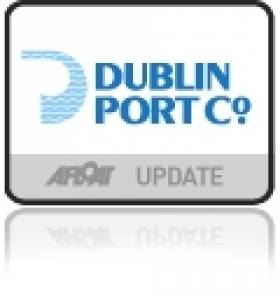Displaying items by tag: Astilleros Zamakoza S.A. Bilbao
Dublin Port Tug Trio For Sale
The smallest of the tugs for sale is the 17-tonnes bollard pull Ben Eadar (1972/198grt) which was built by Richard Dunston (Hessle) Ltd. She is berthed elsewhere in the port alongside the former Dundalk Port Company owned dredger Hebble Sand, which too has been recently put up for sale. For more information about the grab-hopper dredger click HERE.
Ben Eadar was decommissioned in 2009 and her 35-tonnes bollard-pull fleetmates Cluain Tarbh (1991/268grt) built by McTay Marine of Bromborough and Deilginis (1996/335grt) remained in service until late last year.
Of the trio Deilginis is the last tug commissioned by the Dublin Port & Docks Board (DP&DB) and the 30m tug is also the last to carry a traditional naming theme based on Dublin Bay coastal suburbs spelt in Irish. Deilginis is the Irish for Dalkey, Cluain Tarbh is for Clontarf and Ben Eadar is a translation for Howth.
Deilginis was launched from Astilleros Zamakona S.A. in Bilbao, the same Spanish shipyard that was commissioned by the Dublin Port Company to build two 50-tonnes bollard pull tractor tug sisters. The first newbuild Shackleton entered service late last year and she was followed by Beaufort in early 2010. In March of that year the tugs that cost €6m each to build were officially named in a joint ceremony.
- Dublin Bay
- Clontarf
- Dublin Port Company
- Dundalk Port Company
- howth
- dalkey
- Port of Dublin
- Ports and Shipping News
- Dublin Port Tugs
- Deilginis
- Cluain Tarbh
- Ben Eadar
- Dublin Port & Docks Board
- Hebble Sand
- Dredger for Sale
- VoithSchneider trator tugs
- EastLink bridge
- North Wall Extension
- Dublin Bay suburbs
- McTay Marine
- Richard Dunston (Hessle) Ltd
- Astilleros Zamakoza S.A. Bilbao





























































